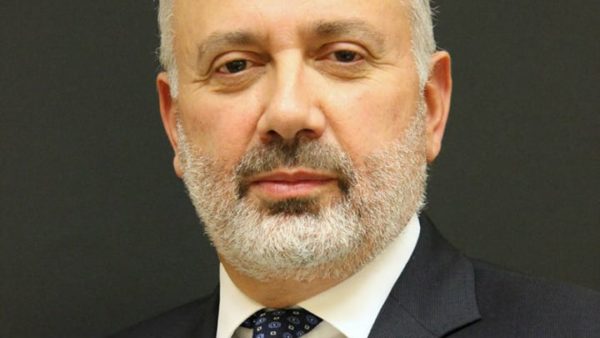
Hayek told Reuters on Monday that he received a formal notification from Lebanon’s finance ministry that his nomination was rescinded, two weeks after he announced his candidacy on Twitter. He said the decision was due to pressure from other governments, which he declined to name.
An official with Lebanon’s finance ministry confirmed that the nomination had been withdrawn before it was registered by the World Bank’s nominating committee, adding: “there was no American pressure or other (pressure).”
The same official said some parts of the Lebanese government which includes nearly all of Lebanon’s rival political factions – wanted to nominate Hayek, but others did not. In the end, the finance ministry decided not to proceed with a candidate viewed as having little chance of winning, the official said.
The withdrawal leaves U.S. Treasury Undersecretary for International Affairs David Malpass as the sole announced candidate to lead the World Bank with about 10 days to go before the nomination period closes on March 14.
A World Bank spokesman declined to comment on the decision.
The United States, which wields the most voting power on the World Bank’s board, has chosen every leader of the institution since it began operations in 1946. Challengers from Nigeria and Colombia emerged in 2012 under a new open nomination process when the U.S. nominee, Jim Yong Kim, was first elected as World Bank president. Kim resigned in January to join a private infrastructure fund
‘GLOBALIST PERSPECTIVE’
Hayek, a former investment banker who runs Lebanon’s privatization agency, said he was meeting this week in Washington with World Bank executive directors to try to persuade them to back his candidacy.
Hayek told Reuters that he respects Malpass, who he knows from their careers at the former Bear Stearns investment bank, but wanted to offer more of a “globalist perspective” at the World Bank, focusing on the growing refugee problem, using the bank’s capital more efficiently and engaging local civil society groups more effectively.
“Even if at the end of the day Mr. Malpass is elected, having somebody else in the running gives more legitimacy to that election,” he said. “We need to move away from the idea the that the president of the United States appoints the president of the World Bank,” he said.
Hayek, who now holds U.S. and Lebanese citizenship, said he would work to stretch the bank’s capital by focusing more on enhancing private credit rather than direct loans, securitization loans and developing capital markets in client countries.
“Instead of funding the next dam, maybe we should fund the next exchange,” he added.
MALPASS ON CLIMATE
Malpass, who worked in emerging market finance earlier in his career, has been critical of the World Bank’s continued lending to China in the past, but said his views had shifted since the bank agreed to reforms last year aimed partially at “graduating” China and some other middle-income countries away from World Bank support.
Malpass last week traveled to Europe with U.S. Treasury Secretary Steven Mnuchin and met with French President Emmanuel Macron. He told a news conference in Paris that he has had “good conversations” with Macron and officials from Japan, South Korea, China, Canada and Italy regarding his plans to make the World Bank “a very effective institution for development, poverty alleviation, environment, and climate change.”
Malpass said he expects the World Bank to continue its current course on lending related to climate change, despite the Trump administration’s support of coal power projects.
“The World Bank has goals that it’s been meeting with regard to the climate change action plan, I expect it to be able to continue and meet its obligations under those operations,” he said.
The World Bank has said it intends to have its new president elected by the time of its April 12-14 spring meetings with the International Monetary Fund.
(Reuters)

Leave a Reply
You must be logged in to post a comment.